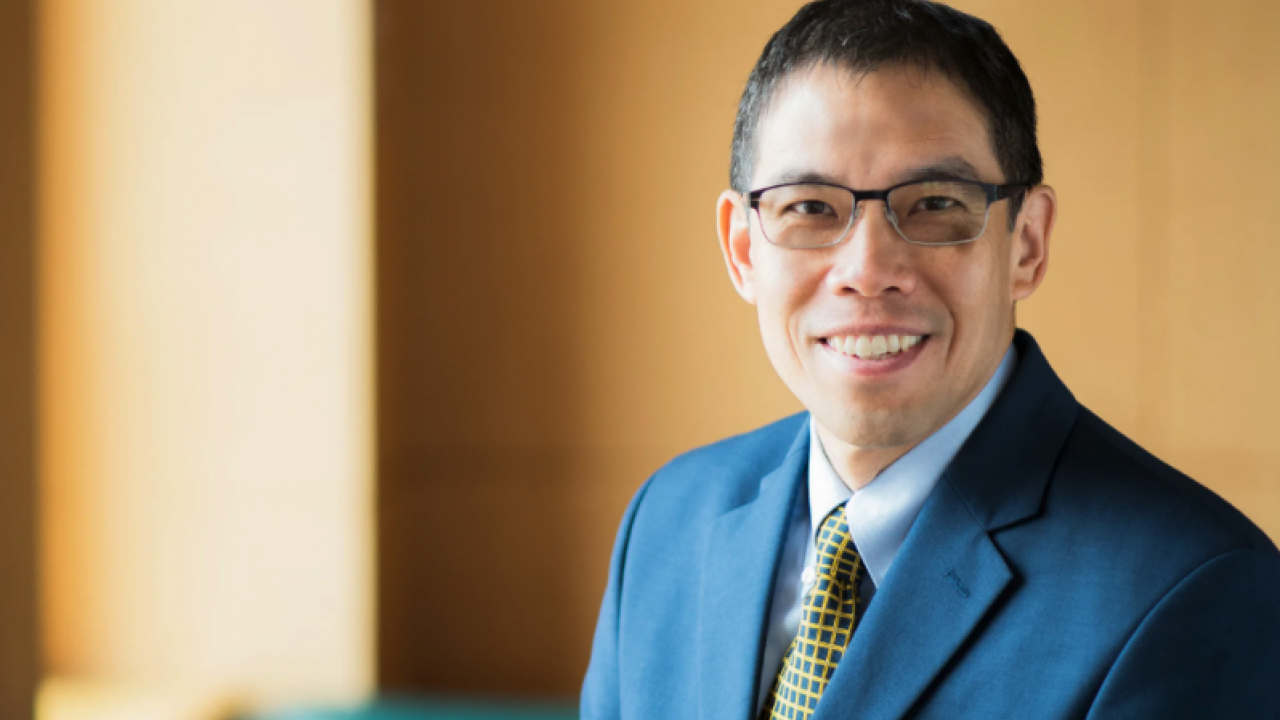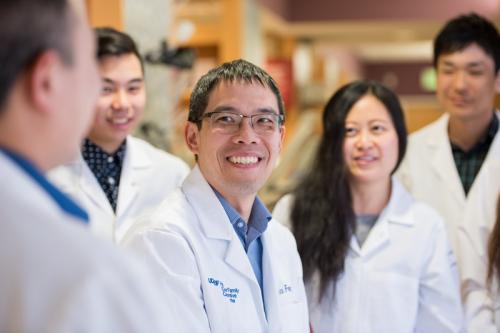
The NCI recently awarded Larry Fong, MD, leader of the Cancer Immunotherapy Program, an Outstanding Investigator Award (R35). These awards support investigators with outstanding records of productivity in cancer research and provide multi-year funding for projects of unusual potential in cancer research.
Dr. Fong’s project will use single-cell approaches to explore response and resistance to immunotherapy.
Below, Dr. Fong discusses working in the time when immunotherapy was considered science fiction, and why the time is right for his novel approaches.
Q. Congratulations on receiving an Outstanding Investigator Award (R35) from the NCI. Your project is called “Determinants of response to cancer immunotherapy.” Please describe the main objectives and why you’re pursuing this line of investigation. What problems are you hoping to solve?
Immunotherapy is transforming how we treat cancer. Patients that respond to these treatments can have complete regression of their cancer and can go back to living normal lives, but this happens only in a minority of patients. Our grant is focused on understanding why this is. We’re using new approaches to understand the immune system our patients so that we can develop treatments that are hopefully effective in more patients.
Larry Fong, MD
Q. Who is on your team for this? What areas of expertise do they bring to the project?
We collaborate closely with UCSF’s Matt Spitzer and Jimmie Ye. Matt is an immunologist focused on using single cell approaches to study the immune system. Jimmie is a computation biologist who is among the leaders in single cell approaches. We all bring complementary interests to this effort with a shared goal of improving patient outcomes.
Q. Has something happened in the past 5-10 years in the area of immunotherapy that makes a project like this viable in ways that it might not have been in years prior?
While we have been studying cancer immunotherapy for over 20 years, its only in the last seven to eight years that this field has really taken off. We know have treatments that work, so this allows us to figure our how it works. In doing so, we can also examine why it doesn’t work. The single-cell techniques have been also developed over the same time, so our project represents the confluence of two recent transformative developments.
Q. Would you talk about the kind of “mechanistic studies” you plan to do? What is novel about them?
We are doing these mechanistic studies on a single-cell level. In the past, we would study a tumor as a mixture of a lot of different cells. These new approaches let us study each cell individually within the tumor.
Q. Your portfolio contains numerous honors and funding awards for your research achievements spanning 25 years. What will the R35 ($4.2 million over seven years) from the NCI allow you to do? In what way is it the right time for the NCI to fund work like this?
This award is longer and larger than the usual NIH R01 award. This allows us to be bolder in the questions that we can ask and focus on a longer time horizon.
Q. Last question. What advice do you have for early-career scientists when pursuing funding? Does fortune reward the bold and persistent?
For much of my career, people believed cancer immunotherapy was science fiction. We have to endure years of struggling to obtain funding and even publish our research. We were fortunate (and lucky) to have kept our research moving forward. My advice to young scientists is to stick to their convictions. If you are doing what you love, you’ll eventually succeed.

In Pursuit of Cancer Immunotherapy
- Combination immunotherapy induces distinct T-cell repertoire responses when administered to patients with different malignancies (2020)
- Present at Creation of Nobel-Winning ‘Checkpoint Inhibitor’ Therapies, Immunologist Looks to the Future (2018)
- New ‘Immunoprofiler’ Initiative will Advance Drug Discovery, Precision Immunotherapy for Cancer (2017)
- New Cancer Immunotherapy Clinic Offers Unique Studies of Promising Treatments (2016)
- Therapy: An immune one–two punch (2015)
- Killing Cancer Through the Immune System (2014)
- Unmasking the immune recognition of prostate cancer with CTLA4 blockade (2012)
- UCSF Scientists Play Key Role in Success of Yervoy, a New Cancer Drug (2011)
- Developing Immunotherapy As Legitimate Therapy for Patients With Prostate Cancer (2010)
- An aberrant prostate antigen–specific immune response causes prostatitis in mice and is associated with chronic prostatitis in humans (2009)
- Dendritic Cells in Cancer Immunotherapy (2000)